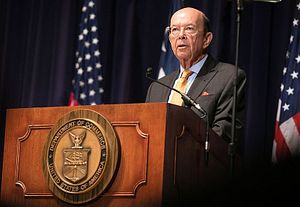In 2016, the Obama administration granted India the bespoke status of becoming a Major Defense Partner of the United States—a status akin to that of a major non-NATO ally, without using that exact designation. It was effectively a logical extension of several years of high-level U.S.-India talks on defense technology cooperation through the aegis of the bilateral Defense Technology and Trade Initiative (DTTI). Under the designation, India would have access to sensitive U.S. defense technologies in the same way that U.S. treaty allies do—in theory.
On Monday, the Trump administration took an important step in helping New Delhi realize the benefits of its Major Defense Partner status. Coinciding with a major speech on the U.S. strategy for the Indo-Pacific by U.S. Secretary of State Mike Pompeo, U.S. Secretary of Commerce Wilbur Ross announced that India would be upgraded to the U.S. Department of Commerce’s Tier 1 Strategic Trade Authorization level, granting India access to a large scope of exports without specific licenses.
“India’s status as a Major Defense Partner led to its becoming a Strategic Trade Authorization (STA) Tier 1 country, comparable to our NATO allies, under the Department of Commerce’s Export Administration Regulations,” said Ross, in a press release Monday. “This reflects India’s membership in three of the four multilateral export control regimes, as well the development of its national export control system. U.S. companies will be able to more efficiently export a much wider range of products to Indian high technology and military customers. India’s new status will benefit U.S. manufacturers while continuing to protect our national security.”
“This regulatory change will enhance the bilateral defense trade relationship and result in a greater volume of U.S. exports to India,” the U.S. Department of Commerce noted. The change comes ahead of a highly anticipated inaugural U.S.-India ‘two-plus-two’ meeting that will bring together the top foreign and defense officials from both countries for a high-level consultation on strategic and defense issues.
The two countries are expected to conclude a so-called foundational agreement on military communications—the Communications Compatibility and Security Agreement, or COMCASA—during the meeting. There remain a few final obstacles to an agreement on the Indian side, the Indian Express reported early on Wednesday.
Ross’ announcement was designed to buttress Pompeo’s announcements and highlight continuing U.S. attention to the Indo-Pacific. It will be welcomed in New Delhi as a sign that U.S.-India ties remain on firm footing. Most significantly, the Trump administration, while it has broken with the administration that preceded it along several fronts, has maintained broad continuity as far as security cooperation with India is concerned. That doesn’t appear to be changing anytime soon.

































